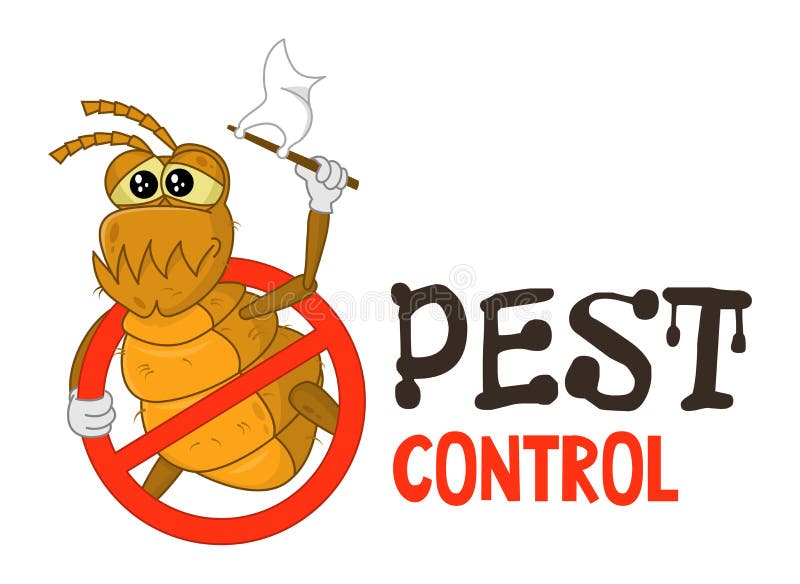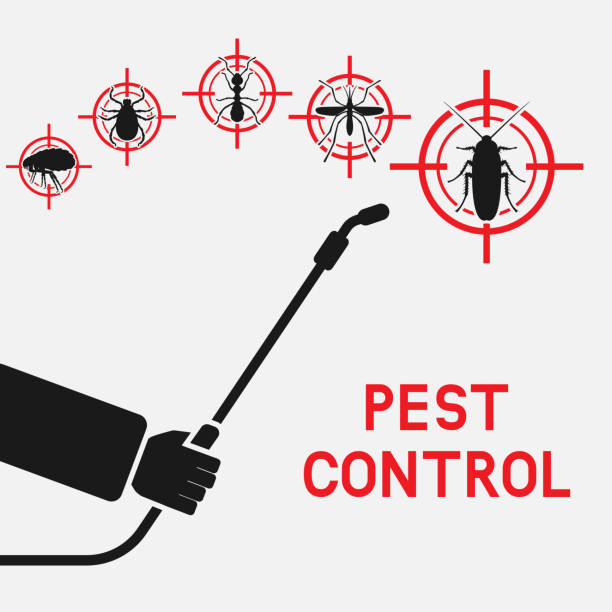Safe and Reputable Pest Control for Lasting Security
Efficient pest management calls for a complex technique that stabilizes eco-friendly stability with the need for reliable parasite reductions. The nuances of these techniques may not be promptly clear, prompting a closer examination of the techniques that can lead to lasting bug control end results.
Recognizing Bug Control Techniques
Insect control encompasses a selection of approaches targeted at managing and eradicating undesirable bugs and rodents that can intimidate both health and wellness and building. Understanding these approaches is vital for efficient parasite monitoring.
The main groups of bug control methods consist of mechanical, biological, and chemical approaches. Mechanical approaches include physical obstacles and traps to avoid parasite entry and capture unwanted types. Utilizing screens on windows or using sticky traps can substantially decrease insect populaces without introducing dangerous substances - exterminator coquitlam.

Chemical parasite control is often the most identified approach, using chemicals to remove bugs. These chemicals can be reliable however should be made use of with caution to prevent adverse effects on non-target types and the environment.
Advantages of Eco-Friendly Solutions
Exactly how can environmentally friendly remedies change pest control methods? The fostering of green insect control methods provides various benefits, considerably improving the efficiency and safety and security of bug administration (exterminator coquitlam). These options use natural ingredients, reducing the dependence on unsafe chemicals that can posture dangers to human health and wellness and the environment. This shift not just shields family pets and families but additionally reduces the capacity for soil and water contamination.

One more benefit is the positive impact on neighborhood biodiversity. Environmentally friendly solutions are designed to target certain parasites while protecting valuable insects and wildlife, advertising a well balanced ecosystem. This technique aligns with the growing consumer need for lasting techniques, boosting the reputation of bug control service providers.
Integrated Bug Monitoring Approaches
The implementation of environmentally friendly services normally brings about the fostering of Integrated Insect Management (IPM) techniques, which even more improve insect control effectiveness. IPM is an all natural technique that incorporates numerous techniques to handle bug populations while minimizing environmental impact. This strategy stresses the usage of organic, social, mechanical, and chemical controls, making certain a sustainable and balanced method of pest management.
One basic aspect of IPM is the thorough evaluation of insect activity and ecological problems. By keeping an eye on bug populations and identifying their life process, experts can carry out targeted interventions that interrupt the insect's habitat or lifecycle, lowering dependence on chemical pesticides. Additionally, social techniques such as plant rotation and habitat adjustment can substantially decrease pest facility and reproduction.
Another critical part is the use of organic control agents, such as beneficial pests or bacteria, which can naturally subdue insect populaces. When chemical applications are required, IPM focuses on the use of low-risk chemicals and applies them selectively, reducing direct exposure to non-target organisms and human beings.
Incorporating IPM techniques not only improves bug control effectiveness yet also advertises a safer ecological community, straightening with the expanding need for sustainable techniques in pest administration.
Safe Practices for Homeowners
Recognizing the significance of secure practices in bug control can encourage property owners to effectively handle parasite problems while securing their health and the atmosphere. Carrying out precautionary actions and safe methods is important in decreasing exposure to dangerous chemicals.
Homeowners should pop over to this site first assess their environment for problems that bring in parasites, such as standing mess, water, and food waste. Frequently cleaning and sealing entry points can hinder parasites from attacking the home. Making use of all-natural deterrents, such as necessary oils or diatomaceous earth, can offer effective alternatives to chemical pesticides.
When chemical therapies are essential, homeowners should decide for items that are particularly identified as safe for residential usage. It is important to follow application standards diligently to prevent overexposure. Utilizing targeted therapies in locations where insects are identified, instead than blanket splashing, can dramatically lower chemical use.
Lastly, preserving open communication with bug control professionals is essential. House owners ought to ask about the safety and security of products made use of and request eco-friendly options whenever possible. By taking on these safe techniques, property owners can develop a healthier living atmosphere while successfully managing insect concerns.

Tips for Long-Term Defense
Developing a bug monitoring strategy that emphasizes long-term protection can significantly boost the efficiency of the risk-free methods formerly gone over. To achieve this, home owners should execute routine examinations of their home, concentrating on additional resources concealed locations such as attics, cellars, and crawl areas. Early discovery of parasite task is essential in preventing problems from holding.
These practices lower attractants that draw bugs right into the home. Securing access factors, such as fractures around windows and doors, can effectively obstruct prospective insect access.
Landscape design must likewise be considered; keeping plants cut and preserving a distance in between greenery and the home minimizes concealing places for parasites. Using natural deterrents, such as important oils or diatomaceous planet, can additionally dissuade problems without turning to rough chemicals.
Last but not least, working together with an expert insect control service for routine examinations can provide an extra layer of safety and security. These experts can use tailored suggestions and advanced treatments, ensuring that your home remains shielded against parasites in the long-term.
Verdict
Finally, secure and dependable bug control calls for a diverse strategy that emphasizes green methods and integrated Read Full Article pest administration. By implementing natural deterrents, carrying out normal inspections, and preserving correct hygiene, property owners can dramatically reduce insect populaces while shielding beneficial bugs and the atmosphere. Cooperation with expert insect control solutions boosts the performance of these strategies, ensuring tailored services that give lasting protection and assurance against future invasions.
Efficient bug monitoring calls for a multifaceted method that balances ecological integrity with the need for effective insect suppression. The adoption of environmentally friendly insect control techniques provides many benefits, significantly improving the effectiveness and safety and security of pest monitoring.The application of eco-friendly solutions naturally leads to the fostering of Integrated Bug Monitoring (IPM) approaches, which further enhance parasite control efficacy. exterminator coquitlam. By keeping an eye on pest populations and determining their life cycles, professionals can carry out targeted interventions that interfere with the parasite's environment or lifecycle, lowering reliance on chemical pesticides.In final thought, safe and reputable bug control calls for a complex method that highlights green methods and integrated pest management